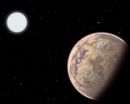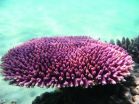(Press-News.org) As local and national governments struggle to deal with ever-growing piles of electronic waste (or "e-waste"), scientists are now refining the picture of just how much there is and where it really ends up. Published in the ACS journal Environmental Science & Technology, their study found that nearly a quarter of e-waste that developed countries discard floods into just seven developing countries — with major potential health risks for the people who live there.
Knut Breivik and colleagues note that the export from developed to developing regions of e-waste — everything from used TVs and refrigerators to computers and cell phones — has caused concern. On one hand, this practice can help people in resource-poor countries acquire technology or earn income from selling re-usable parts and raw materials from the waste. But on the other, environmental regulations and enforcement in developing countries are often too weak to protect local people and their environment from the waste's toxins, including lead and mercury, which are known to make people sick. To help address this mounting problem, Breivik's team decided to pinpoint how much e-waste the world is discarding and where it goes.
Past estimates on the flow of e-waste vary, so the researchers analyzed data from many studies to arrive at more reliable numbers. They estimated that in 2005, more than 38 million tons of used electronics were discarded worldwide. Nearly a quarter of the waste from developed nations went to China, India and five West African countries: Nigeria, Ghana, Ivory Coast, Benin and Liberia. Others have predicted that e-waste will top 72 million tons by 2017. A better understanding of the fate of e-waste could inform how the world deals with it, the researchers say.
INFORMATION:
The authors acknowledge funding from The Research Council of Norway.
The American Chemical Society is a nonprofit organization chartered by the U.S. Congress. With more than 161,000 members, the ACS is the world's largest scientific society and a global leader in providing access to chemistry-related research through its multiple databases, peer-reviewed journals, and scientific conferences. Its main offices are in Washington, D.C., and Columbus, Ohio.
To automatically receive news releases from the American Chemical Society, contact newsroom@acs.org.
Follow us: Twitter
Facebook
The geography of the global electronic waste ('e-waste') burden
2014-07-23
ELSE PRESS RELEASES FROM THIS DATE:
Researchers unlock the protein puzzle
2014-07-23
By using brightly hued dyes, George Mason University researchers discovered an innovative way to reveal where proteins touch each other, possibly leading to new treatments for cancer, arthritis, heart disease and even lung disease.
George Mason researchers unraveled the mystery of deciphering the contact points where proteins touch each other. "One protein interlocks with another protein like adjacent pieces in a jigsaw puzzle, and this sends a signal down the line to the next protein," says Lance Liotta, co-director of the Mason-based Center for Applied Proteomics and ...
A new approach in the search for extraterrestrial intelligence: targeting alien polluters
2014-07-23
Humanity is on the threshold of being able to detect signs of alien life on other worlds. By studying exoplanet atmospheres, we can look for gases like oxygen and methane that only coexist if replenished by life. But those gases come from simple life forms like microbes. What about advanced civilizations? Would they leave any detectable signs?
They might, if they spew industrial pollution into the atmosphere. New research by theorists at the Harvard-Smithsonian Center for Astrophysics (CfA) shows that we could spot the fingerprints of certain pollutants under ideal conditions. ...
An increase in temperature by 2050 may be advantageous to the growth of forage plants
2014-07-23
A 2°C increase in temperature around the world by 2050, according to one of the scenarios predicted by the Intergovernmental Panel on Climate Change (IPCC), may be advantageous to the physiology and the biochemical and biophysical processes involved in the growth of forage plants such as Stylosanthes capitata Vogel, a legume utilized for livestock grazing in tropical countries such as Brazil.
The conclusion is from a study carried out by researchers in the Department of Biology at the Ribeirão Preto Faculty of Philosophy, Sciences and Languages and Literature at the University ...
New method for reducing tumorigenicity in induced pluripotent stem-cell based therapies
2014-07-23
New Rochelle, NY -- The potential for clinical use of induced pluripotent stem cell (iPSC) technology for transplant-based therapeutic strategies has previously been hindered by the risk of dysregulated cell growth, specifically the development of tumors. The ability to use etoposide treatment to halt teratoma formation in iPSCs for the treatment of heart disease, specifically acute myocardial infarction, is demonstrated in an article in Stem Cells and Development, a peer-reviewed journal from Mary Ann Liebert, Inc., publishers. The article is available on the Stem Cells ...
Research charts the ecological impact of microbial respiration in the oxygen-starved ocean
2014-07-23
A sulfur-oxidizing bacterial group called SUP05 will play an increasingly important role in carbon and nutrient cycling in the world's oceans as oxygen minimum zones expand, according to research published this week in the Proceedings of the National Academy of Sciences.
University of British Columbia researchers plumbed the depth of a seasonally anoxic fjord, Canada's Saanich Inlet, to chart how microbial community metabolism changes as oxygen minimum zones form.
"Our study paints a very detailed picture of how SUP05 — a bacterial group related to gill symbionts of ...
Calcification in changing oceans explored in special issue of The Biological Bulletin
2014-07-23
WOODS HOLE, MA -- What do mollusks, starfish, and corals have in common? Aside from their shared marine habitat, they are all calcifiers—organisms that use calcium from their environment to create hard carbonate skeletons and shells for stability and protection.
The July issue of The Biological Bulletin, published by the Marine Biological Laboratory, addresses the challenges faced by these species as ocean composition changes worldwide.
As atmospheric carbon dioxide rises, the world's oceans are becoming warmer and more acidic. This impact of global climate change threatens ...
Somatosensory stimulation inhibits excitability of pyramidal cells in rat hippocampal CA1
2014-07-23
The hippocampal region of the brain is important for encoding environment inputs and memory formation. However, the underlying mechanisms are unclear. Dr. Zhouyan Feng and co-workers from Zhejiang University, China monitored the activity of hippocampal neurons in rats using microelectrode arrays, and explored the mechanisms underlying the neuronal responses. Somatosensory stimulation, in the form of tail clamping, changed local field potentials into theta rhythm-dominated waveforms, decreased the spike firing of pyramidal cells, and increased interneuron firing. In addition, ...
Unbreak my heart
2014-07-23
This news release is available in German.
Researchers of the Max Planck Institute of Molecular Cell Biology and Genetics in Dresden report how they managed to capture detailed three-dimensional images of cardiac dynamics in zebrafish. The novel approach: They combine high-speed Selective Plane Illumination Microscopy (SPIM) and clever image processing to reconstruct multi-view movie stacks of the beating heart. Furthermore, they have developed a method of generating high-resolution static reconstructions of the zebrafish's heart: the Dresden research team used optogenetics ...
Australian researchers pioneer a 'Google street view' of galaxies
2014-07-23
A new home-grown instrument based on bundles of optical fibres is giving Australian astronomers the first 'Google street view' of the cosmos — incredibly detailed views of huge numbers of galaxies.
Developed by researchers at the University of Sydney and the Australian Astronomical Observatory, the optical-fibre bundles can sample the light from up to 60 parts of a galaxy, for a dozen galaxies at a time.
By analysing the light's spectrum astronomers can learn how gas and stars move within each galaxy, where the young stars are forming and where the old stars live. This ...
K computer runs largest ever ensemble simulation of global weather
2014-07-23
Ensemble forecasting is a key part of weather forecasting today. Computers typically run multiple simulations, called ensembles, using slightly different initial conditions or assumptions, and then analyze them together to try to improve forecasts. Now, using Japan's flagship 10-petaFLOPS K computer, researchers from the RIKEN Advanced Institute for Computational Science (AICS) have succeeded in running 10,240 parallel simulations of global weather, the largest number ever performed, using data assimilation to reduce the range of uncertainties.
The assimilation of the ...




